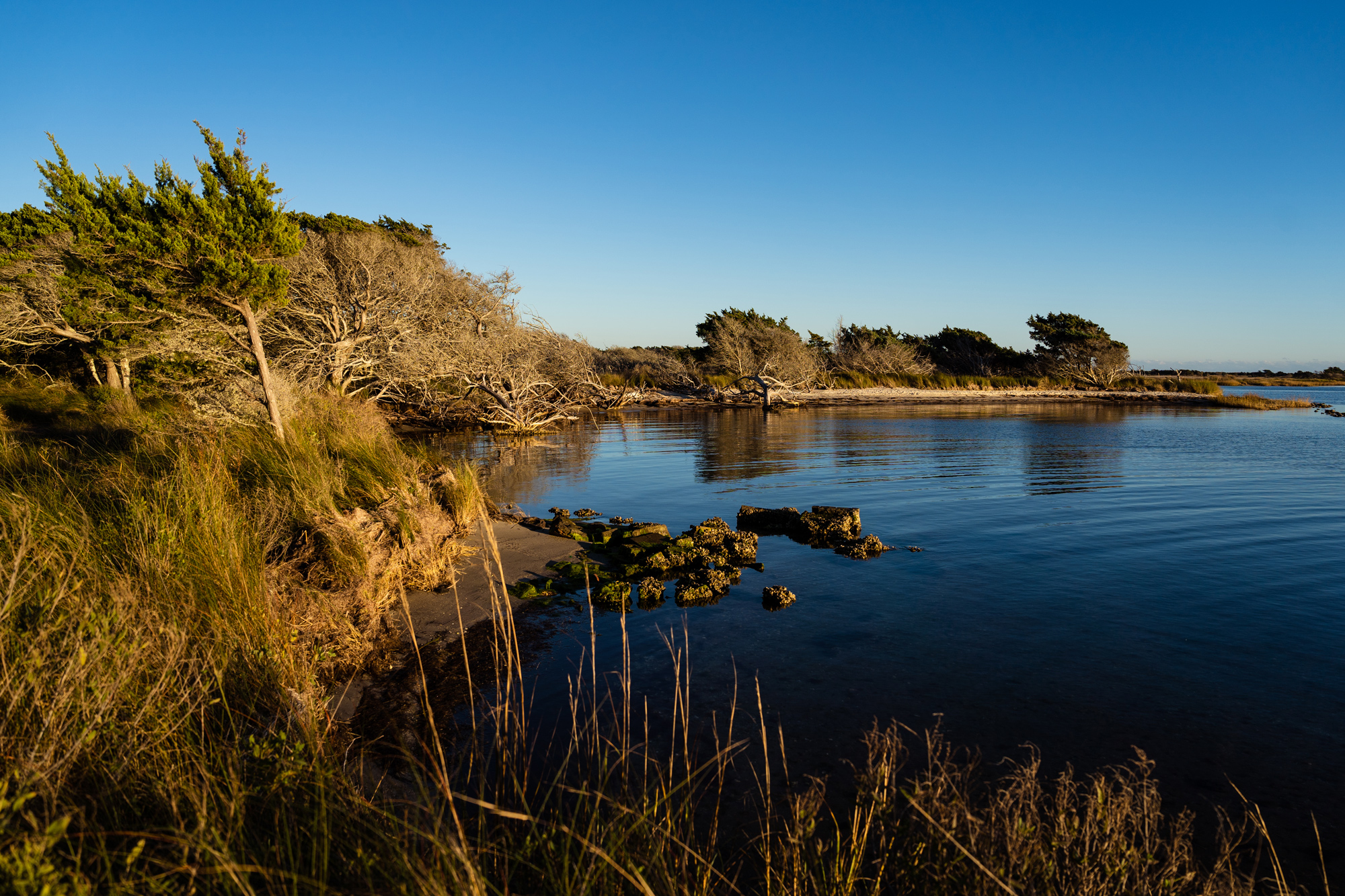Our coastal management goal is deeply intertwined with and supports our work for clean water, living shorelines, thriving oysters, and a coast that is free of marine debris.
We work with a multitude of stakeholders to engage them in sound coastal management decisions based on the best science and technology. In addition, we partner to secure adequate funds so that decisions can be implemented and enforced, and support and strengthen the legal foundation that enables us to protect and restore our coast.
Coastal resiliency is at the foundation of this goal’s work, recognizing that now is the critical time to prepare for the future. This means ensuring natural defenses are sound, waters are safe for fishing and swimming and we are free of emerging contaminants and other threats like offshore oil and microplastics. In 2023, we will continue to unite communities, businesses, government agencies, and academia to work for effective coastal management decisions.
For 40 years, the Federation has increased the number, diversity, and commitment of stakeholders by identifying and linking common interests to forge partnerships. This allows us to maintain and improve the laws, policies, and funding needed to achieve our other goals. Our policy experts on the coast and in Raleigh are reaching out to and supporting federal and state lawmakers, government officials, regulatory commission members, academics, business and industry leaders, landowners, homeowners, fishers, farmers, media, and other key stakeholders, helping them to help us achieve our goals and benchmarks. But that’s not all we do.
We also keep watch on important emerging issues that aren’t fully encompassed within our existing goals. When needed, we adjust and adapt to address unanticipated problems or opportunities. Several issues that will likely be added to our policy work in the years ahead include influencing coastal energy and climate policies, better aligning our existing water quality work with strategies to reduce nutrients and toxic algae in coastal waterways, increasing our capacity to reach out and engage with communities that are currently underserved by our work, and launching a comprehensive enrichment program to increase the capacity of local governments (elected and appointed officials, staff and consultants) to address environmental issues facing our coast.
Wetlands Rule
A landmark decision by the U.S. Supreme Court in 2023 narrowed the federal definition of a wetland, resulting in drastic reductions in the protection of this critical ecosystem.
The new definition requires federal wetlands to have “permanent, continuous surface connection to bodies that are waters of the United States.” While on the surface this might seem like a technicality, the N.C. General Assembly later adopted the same definition for wetlands here in North Carolina. As a result, approximately 2 million acres of North Carolina’s wetlands are at risk of being filled and changed forever by land use and development.
Wetlands that do not have a permanent, continuous surface connection are called “isolated wetlands” and include many unique and treasured habitats, such as Carolina Bays.
The benefits of wetlands are diverse and significant, including:
- Provide important habitats for fish, shellfish, and wildlife.
- Act as natural sponges that hold and absorb stormwater to reduce flooding of low-lying towns and communities. A single acre of wetlands can hold over 1 million gallons of stormwater.
- Filter our drinking water, removing pollutants and acting as nutrient sinks for phosphorus and nitrogen.
- Store immense amounts of carbon, keeping it out of our atmosphere.
The economic and environmental benefits of wetlands are unmatched by any other ecosystem on the coast and across the state and nation. The loss of protections for isolated wetlands will cause serious impacts to coastal communities, environments, and fisheries.
The Coastal Federation is committed to working toward comprehensive wetland protection in North Carolina. We are currently participating in a state-wide coalition, composed of advocates, attorneys, lobbyists, scientists, and analysts that are working collaboratively on strategies to mitigate impacts and pro
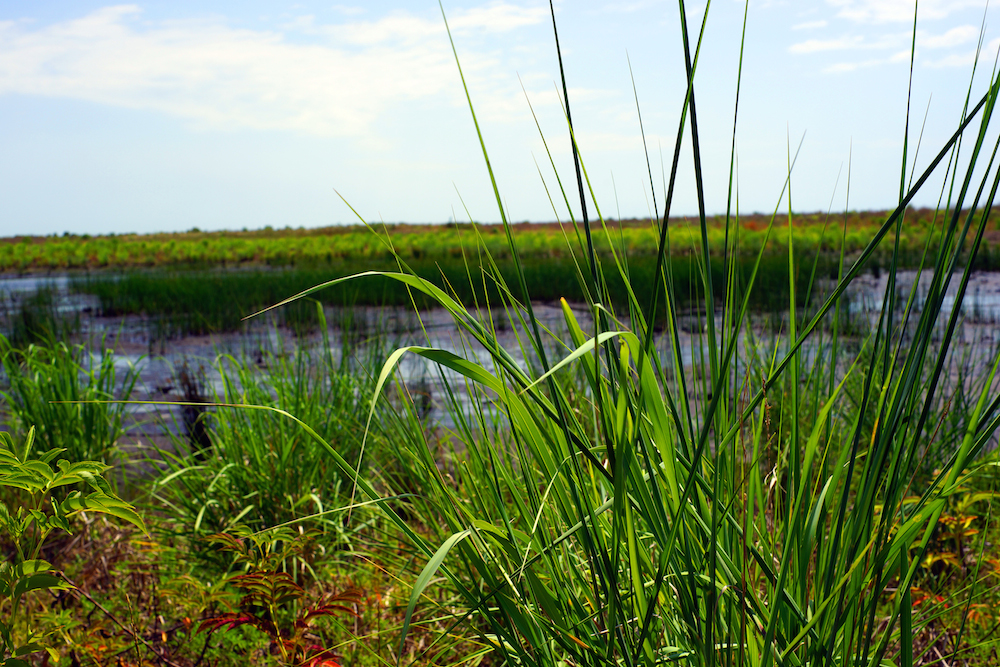
Current Issues
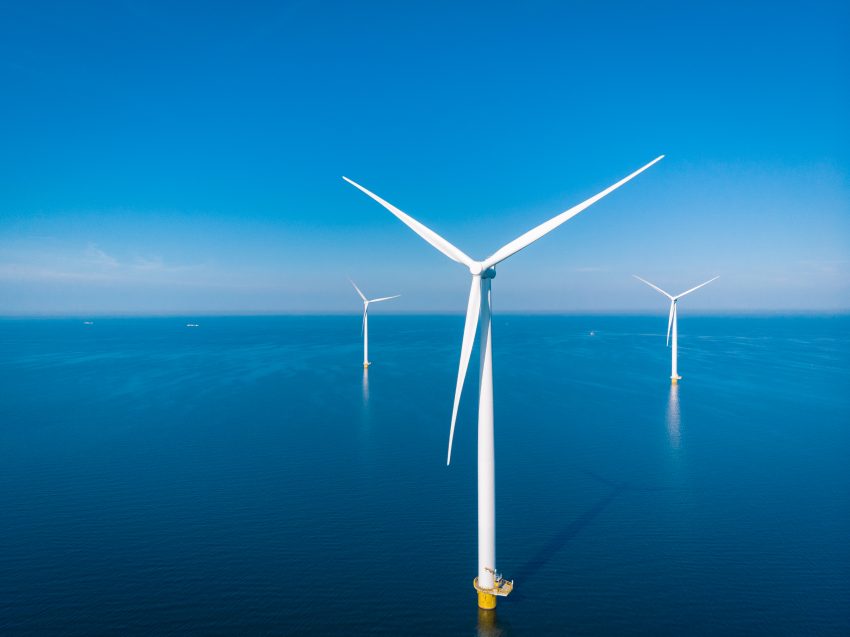
Offshore Wind Energy
Offshore wind has the potential to deliver large amounts of renewable energy since the capacity for electrical power generation of an offshore wind farm can be scaled up. The Coastal Federation supports responsible offshore wind development.

The Carbon Petition
The North Carolina Coastal Federation and Clean Air Carolina petitioned the N.C. Environmental Management Commission to adopt a rule limiting carbon dioxide pollution from the electric power sector.
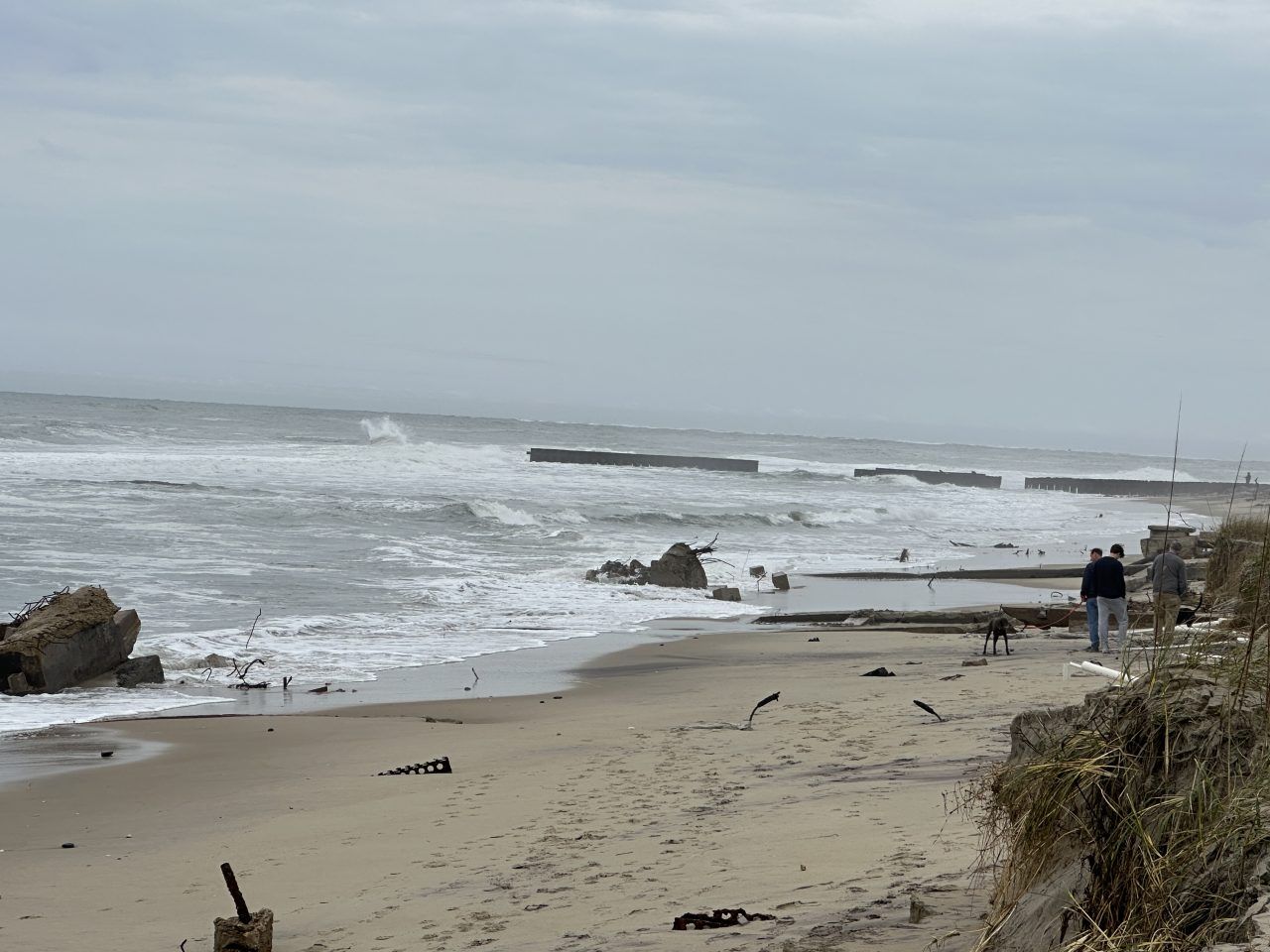
Buxton Beach Access
The Coastal Federation is working with the Southern Environmental Law Center (SELC) to get the U.S. Army Corps of Engineers to clean up the contaminated waters of the Buxton Beach Access on the Cape Hatteras National Seashore.
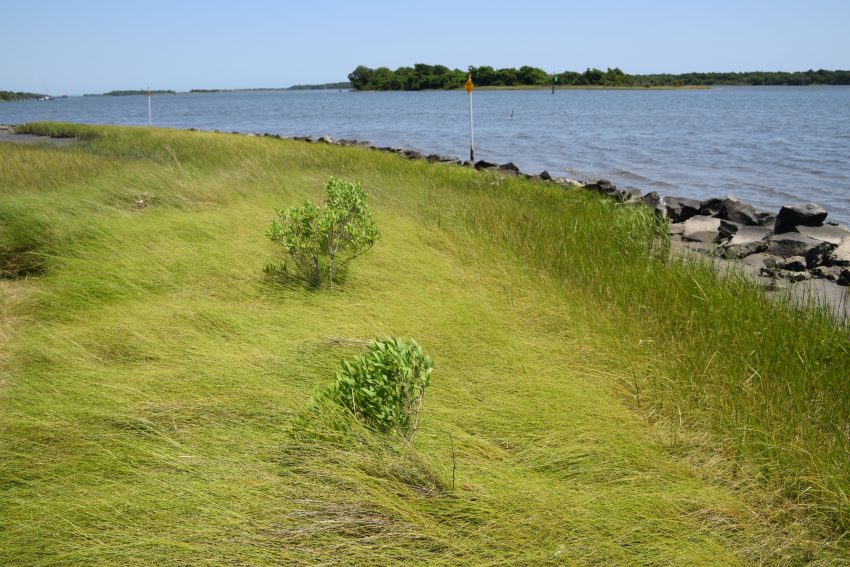
Living Shorelines Permitting
The Coastal Federation encourages public and private waterfront property owners to use environmentally beneficial shoreline stabilization alternatives that will both protect their investments and provide for good water quality and habitat that support more fish and wildlife.
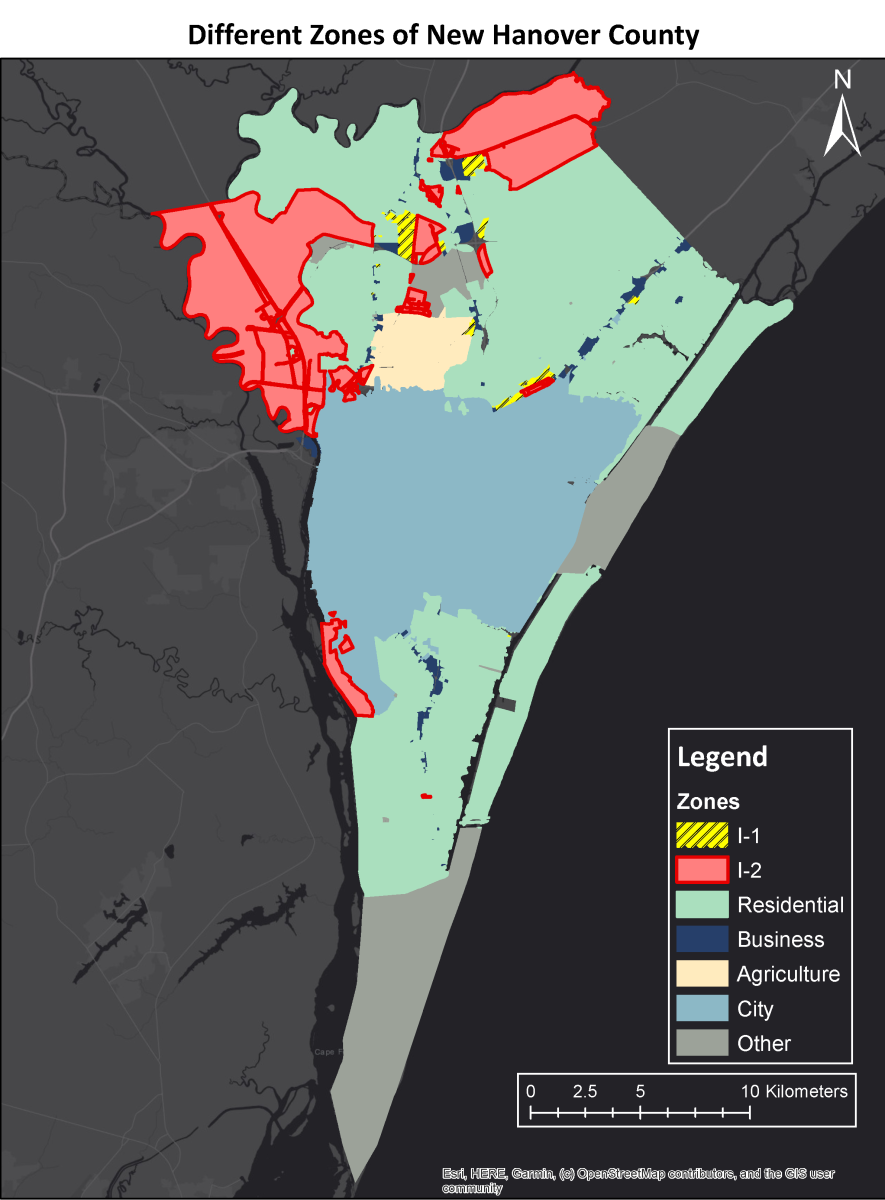
New Hanover Development Ordinance
Partners from across the County are working to provide our community with the opportunity for input to determine which heavy-manufacturing uses are compatible with the region’s economy, public health, natural assets, and unique quality of life. Will you join us?
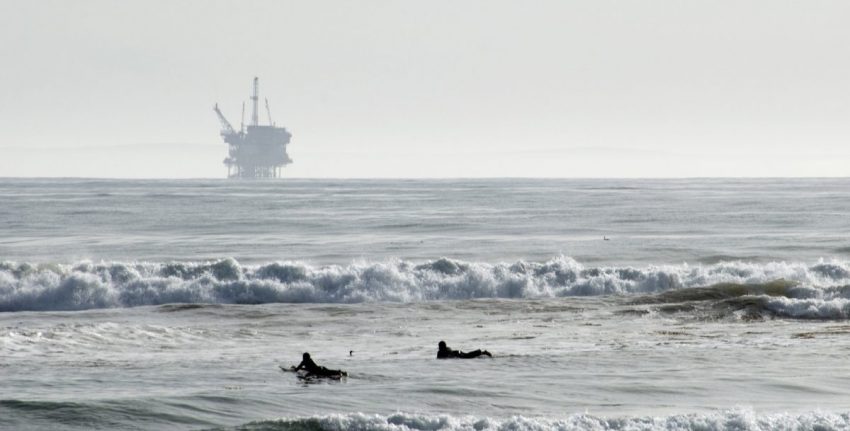
Offshore Oil Drilling
The North Carolina Coastal Federation opposes seismic surveys because of their negative effects on fish and marine mammals as well as the potential barriers the activity poses to access for recreational and commercial fisheries.
Inlets & Beaches
The North Carolina Coastal Federation strives to work with — not against — the natural processes of North Carolina’s barrier islands. Rising sea levels, storms, and efforts to engineer the natural functions of our coastlines threaten habitat and public access. Using hardened structures like terminal groins as a means of erosion control is costly, and states that have used these structures are now dealing with unintended erosion and degraded natural beaches and habitat.
North Carolina’s beaches and inlets are some of our coast’s most valuable environmental and economic assets. Our ability to use the beaches and inlets is a basic public trust right that we all share. The state’s constitution specifically states that preserving our beaches is part of our common heritage and the responsibility of the state government (North Carolina Constitution, Article XIV, Section 5).
We continue to evaluate constructed terminal groins for adverse effects, as well as to oppose the construction and permitting of new terminal groins, especially in communities where residents and visitors have expressed strong opposition. We will also educate people on why these structures are so damaging.
Opposing a harmful erosion control method is not enough as rising sea levels encroach on North Carolina’s beaches and more people move to the coast. Therefore, we will help develop and promote long-term barrier island management strategies that make them more resilient to climate change and less hazardous places to invest. We will also continue to work with local governments to secure funding for dredging long-established navigational channels, as well as support the use of dredged sand where appropriate for beach nourishment projects.
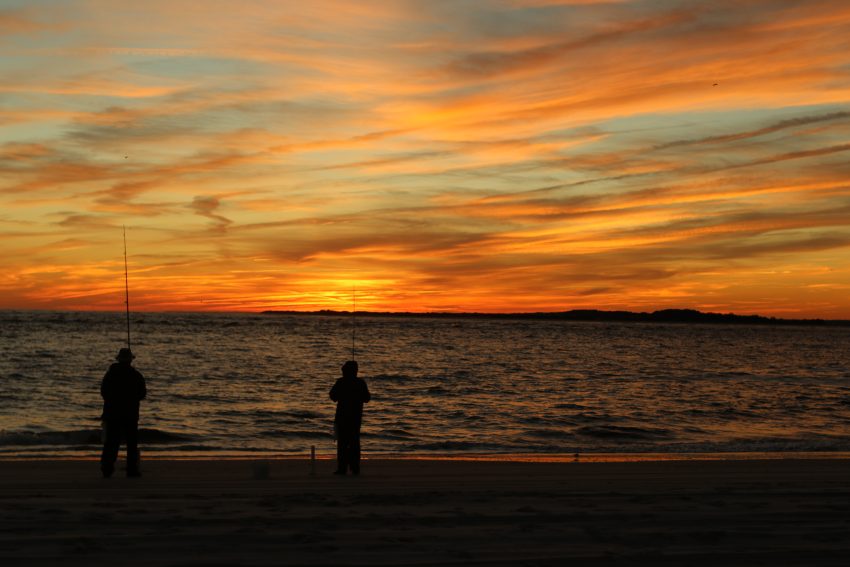
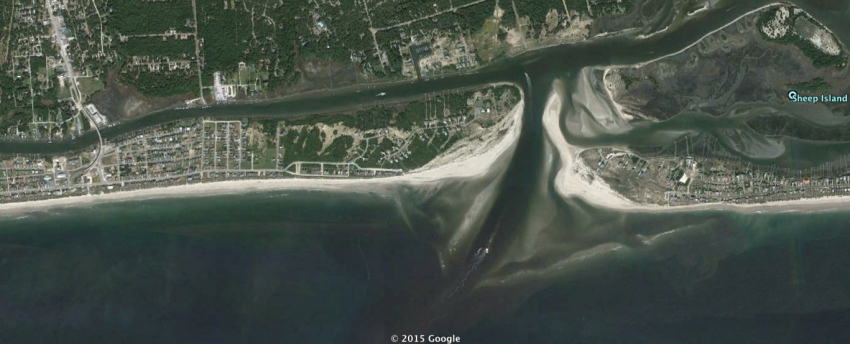
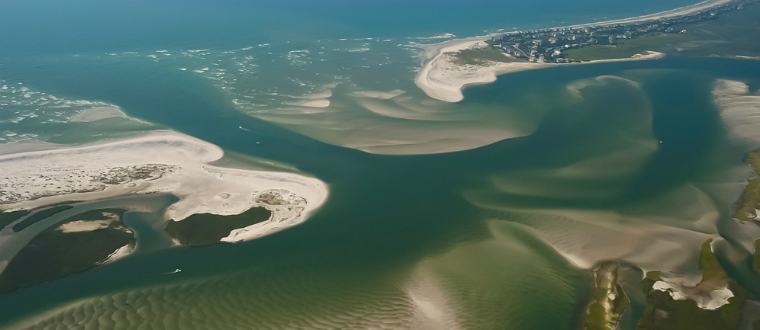
Coastal Investments
The Coastal Federation works at the grassroots level to engage people from all walks of life in ensuring a healthy future for our coast.
Much of that work focuses on protecting and restoring coastal habitats and water quality. The Federation seeks to both lead by example—implementing on-the-ground demonstrations of the practices we espouse—and to educate and empower others to be effective stewards of the coast.
Those on-the-ground demonstration projects include stormwater retrofits, living shorelines, large-scale wetland restoration projects, oyster reef restoration projects, and more. Over the years, the Federation has restored miles of living shorelines, thousands of acres of wetlands, and hundreds of acres of oyster reef. Individual projects can also be quite large, and require significant funding to implement.
| year | amount |
|---|---|
| 2019 | $2,471,934 |
| 2018 | $3,413,310 |
| 2017 | $2,550,147 |
| 2016 | $1,800,337 |
| 2015 | $1,894,955 |
The vast majority of that funding comes from state and federal grants that the Federation wins through a competitive process. The direct expenses from these projects go into the local coastal economy, supporting workers such as truck drivers, barge operators, marine contractors, plant nurseries, civil engineers, and more. This amounts to millions of dollars for our coastal economy each year.
Through our on-the-ground projects, the Coastal Federation directly supports the coastal economy. In addition to these direct benefits, projects restoring coastal habitats and water quality also indirectly benefit the coastal economy by supporting critical industries that rely on a healthy coast, including tourism and fishing.
The Coastal Federation is proud to support a strong coastal economy in addition to a healthy coastal environment.
The Coastal Investments Program
In 2020, the Coastal Federation launched the Coastal Investments Program to support our efforts to pursue federal and state grants for on-the-ground coastal protection and restoration projects—projects that restore our coast and support our economy by employing local workers. Thanks to the support of people like you, this program secured over $14 million in grant funding in 2020. Most of these funds will pass through the federation to restore habitat and water quality over the following three to five years.
An $8 million investment leads to:
temporary jobs
in coastal revenue
in coastal payroll
*Data from a 2015 RTI International study that examined the economic effects on local economies of four Coastal Federation restoration projects.
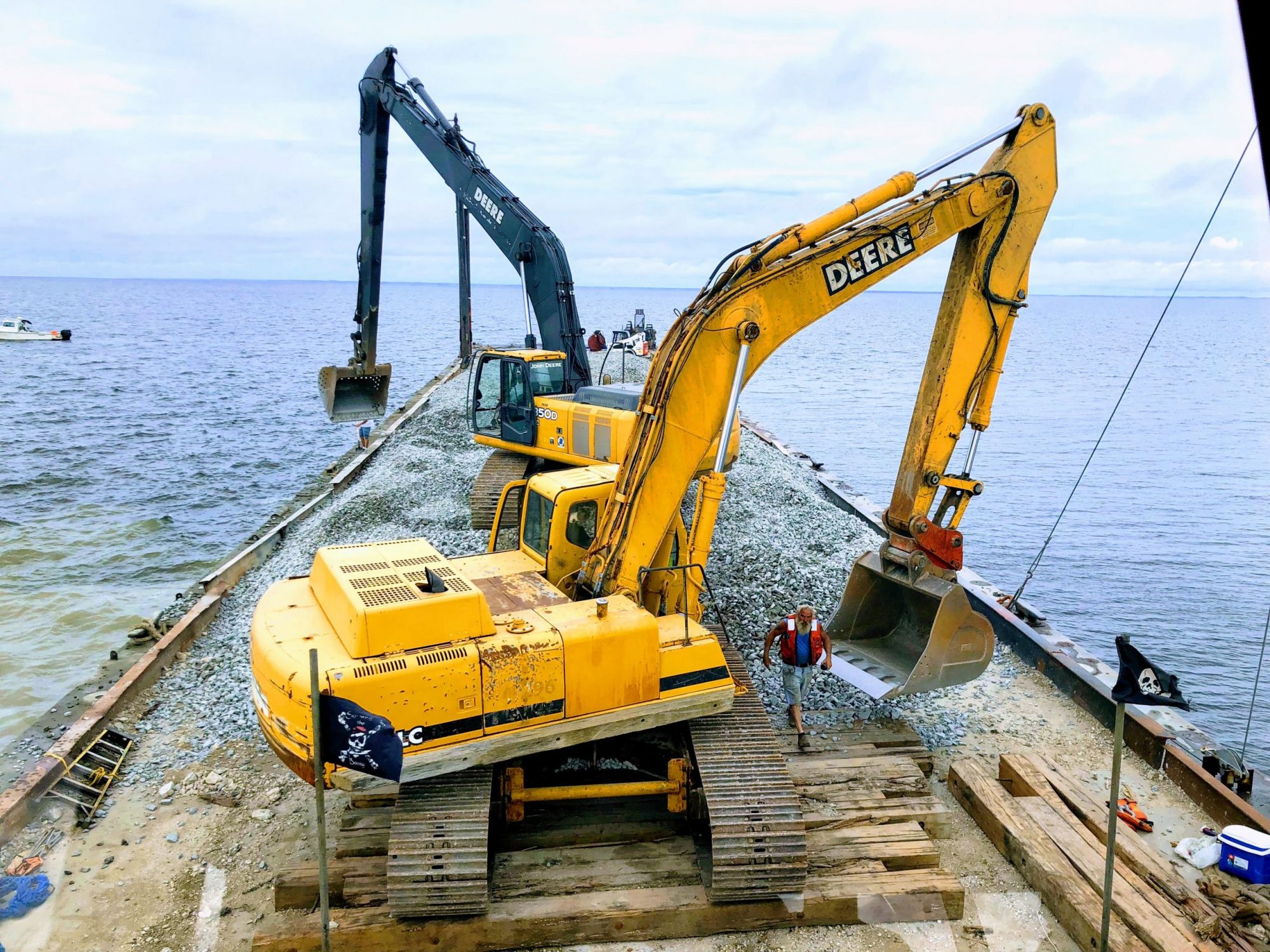
Invest in the Coast
You can help restore the environment and the economy!

